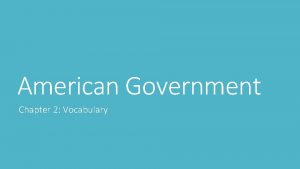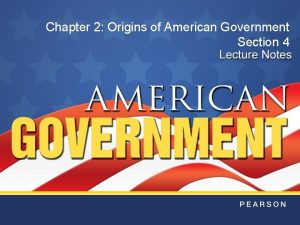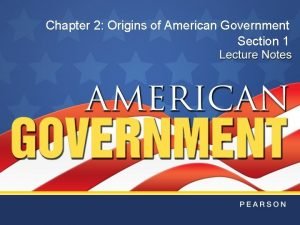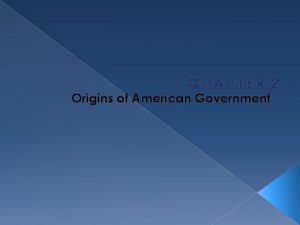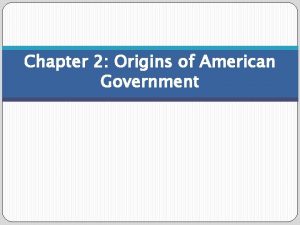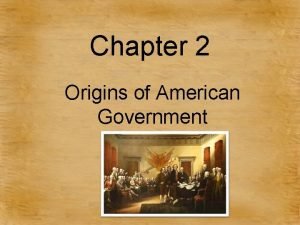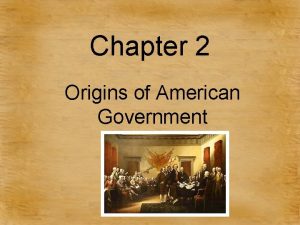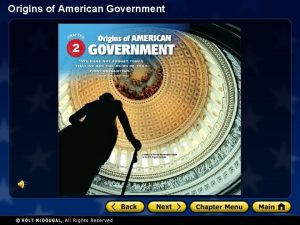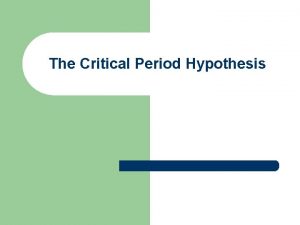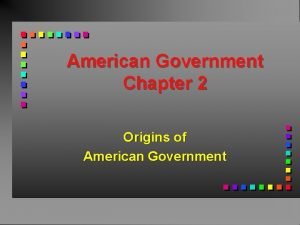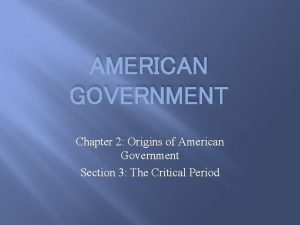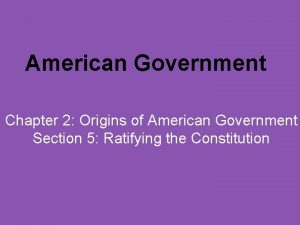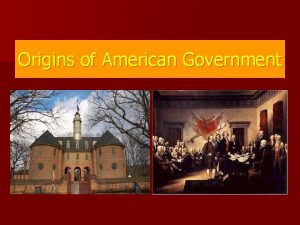Origins of American Government The Critical Period Government









- Slides: 9

Origins of American Government The Critical Period

Government Structure Under the Articles of Confederation • Congress was the sole governing body = Unicameral • Delegates chosen yearly by states • Each state had one vote • No executive or judicial branches • Each year Congress would choose its president or presiding officer

Powers of Congress Make war Send and Receive Ambassadors Set up a Money System Build a Navy

State Obligations • Pledged to obey the • States were Articles primarily • Provide funds and responsible for troops when protecting life, requested property, and • Treat citizens of promoting the other states fairly general welfare and equally

Weaknesses of the Confederation 1. Gov’t had no power to tax • Forced to raise money by borrowing, selling of land, or by asking the states for funds • States could not meet the financial requests made by the Congress 2. Could not regulate trade 3. Lacked the power to make states obey the Articles 4. Articles could be changed only with consent of all 13 states.

Northwest Ordinance • Passed in 1787 • generated income for the new govt. • Orderly settlement of land west of the Ohio River • Orderly transition to state-hood

Struggles of the 1780’s • States did not support the central government. • Made individual agreements with foreign governments. • Organized their own military forces. • Taxed one another’s goods. • Printed their own money. • Debts went unpaid. • Violence eventually breaks out.

Shay’s Rebellion • Small farmers began to lose their land. • A former military officer, Daniel Shay, led an armed uprising that forced several State judges to close their courts. • He led an unsuccessful attack on the federal arsenal in Springfield. • The rebellion was suppressed and Shay retreated to Vermont. • Laws were passed to lessen the burden of people who owed money.

A Need for a Stronger Government Delegates from Maryland Virginia meet at Mount Vernon to discuss trading issues. Due to the success, A meeting was set up in Annapolis for all 13 states. Only five delegates participated. Philadelphia hosted the next meeting where seven delegates participated. This became the Constitutional Convention
 Chapter 2 origins of american government vocabulary
Chapter 2 origins of american government vocabulary Origins of american government section 4
Origins of american government section 4 Chapter 2 origins of american government answer key
Chapter 2 origins of american government answer key Chapter 2: origins of american government worksheet answers
Chapter 2: origins of american government worksheet answers Origins of american government section 1
Origins of american government section 1 Origins of american government section 1
Origins of american government section 1 Chapter 2 lesson 1 origins of american government
Chapter 2 lesson 1 origins of american government Chapter 2 origins of american government
Chapter 2 origins of american government Critical semi critical and non critical instruments
Critical semi critical and non critical instruments Spaulding classification
Spaulding classification
